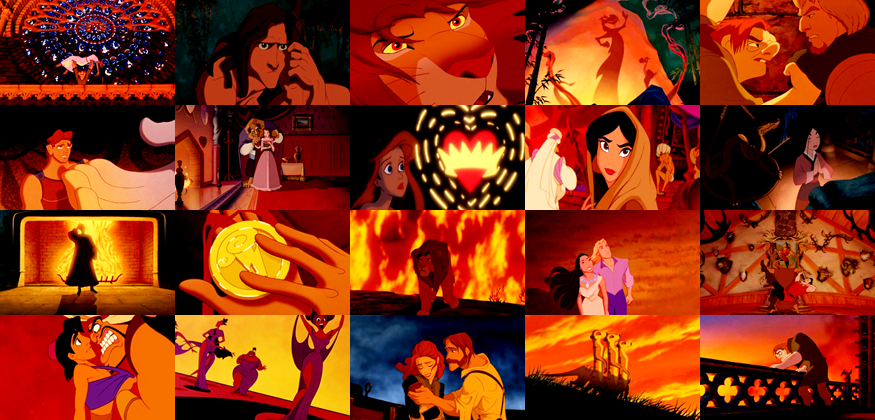
All artwork in the introductions is courtesy of knightbusdriver on livejournal.com
It should come as a surprise to no one that the greatest era in Walt Disney's Feature Animation department is arguably the most beloved era of a single company's film making in motion picture history. After all, not only was Disney at the height of their creative development, but the studio continued to release hit after hit, without any glaring failures in anyone's eyes. To many who are reaching adulthood today,. these films are what we grew up on. My first film watching experiences were at least five of the top movies pictured above. These films have had a profound impact on how we act, how we think, and how we tell our life stories.
But which of these high ranking movies is the most superior? How can one masterpiece be better than another? That is what I will be focusing on for the next several posts. Which film was the most structurally sound, which was the most superior in one area, and ultimately, which was the best. Feel free to argue for one of your movies on this list or if you think my list is incorrect, but please understand that this is all opinion based, so it doesn't make someone stupid if they agree or not.
Here is how the list will be determined. All 10 films of the Disney Renaissance will be judged on the following categories:
Hero
Heroine
Villain
Supporting Cast
Songs (The Rescuers Down Under gets a pass here)
Musical Score
Animation
Story
Special Effects
Theme/ Message
Each film will be scored on a 1-10 scale. The higher points you score for a category, the greater the chance is that film is ranked the best. But please note that just because a film could get two or three 10's in a row, doesn't mean that it is guaranteed a victory. Keep a close eye on the consistent films.
This Round: Characters, Music, Story, and Animation are indeed vital to the conception of an animated film. But what do we truly take out of these films? What are the most significant aspects of all of these movies? That would be theme. Do we recall the story of the Tortoise and the Hare more than moral? I highly doubt it. That is why, with respect to the other elements of Disney Animation, I must say that the lessons and themes of these 10 movies outweigh the plots (or at least they should).
10. The Rescuers Down Under
 Unfortunately for one of the big underdogs on this list, The Rescuers Down Under seems not to have a truly comprehensible lesson or moral. As with the original, the film is more about the journey than learning a lesson, much like an Indiana Jones film or The Lord of the Rings. I guess you could say the moral is poaching is wrong, but I'm pretty sure kids already knew that. I may be going out on a limb when saying this, but if there is a lesson in this, I think it might be don't value your own goals before the goals of others. But this can be easily misinterpreted. I guess I wish I could give more points to this fantastic sequel to an otherwise below average movie.
Unfortunately for one of the big underdogs on this list, The Rescuers Down Under seems not to have a truly comprehensible lesson or moral. As with the original, the film is more about the journey than learning a lesson, much like an Indiana Jones film or The Lord of the Rings. I guess you could say the moral is poaching is wrong, but I'm pretty sure kids already knew that. I may be going out on a limb when saying this, but if there is a lesson in this, I think it might be don't value your own goals before the goals of others. But this can be easily misinterpreted. I guess I wish I could give more points to this fantastic sequel to an otherwise below average movie.+1 point
9. Tarzan
 Yet there is another high caliber Renaissance film with a mixed or confused message. You have to delve deep into the story and plot of Tarzan to fully comprehend just what the movie was trying to convey. It took me almost an additional 20 watches to see for myself. I think the film has multiple messages it's trying to convey. Instead of focusing on the first/ most important lesson, the film attempts to juggle one too many things. The basic message the movie speaks is how you should learn to accept who you are before trying to gain the acceptance of others, which would otherwise have been an extremely powerful message and would have easily warranted the message. But the film also pushes us through the Clayton plot, the conflict between Tarzan and Kerchak, and another message a previous film used. But more on that later...
Yet there is another high caliber Renaissance film with a mixed or confused message. You have to delve deep into the story and plot of Tarzan to fully comprehend just what the movie was trying to convey. It took me almost an additional 20 watches to see for myself. I think the film has multiple messages it's trying to convey. Instead of focusing on the first/ most important lesson, the film attempts to juggle one too many things. The basic message the movie speaks is how you should learn to accept who you are before trying to gain the acceptance of others, which would otherwise have been an extremely powerful message and would have easily warranted the message. But the film also pushes us through the Clayton plot, the conflict between Tarzan and Kerchak, and another message a previous film used. But more on that later...+2 points
8. Hercules
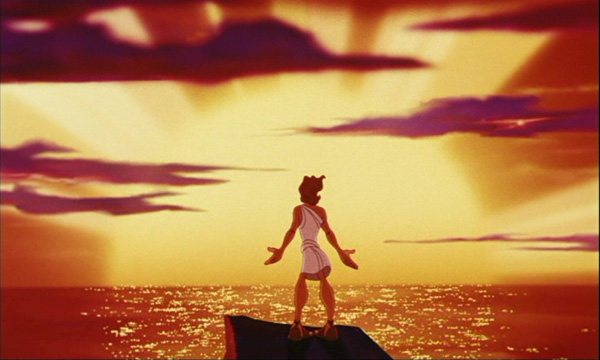
The themes and morals that Hercules teach us has it's own share of flaws. For example, it shares with Tarzan the distinction of having to juggle a couple of different themes. In Hercules's case, they are learning to accept who you are before you look for acceptance from others and a true hero is measured by the strength of his heart, not by the size of his strength. The other flaw is that is wears the latter like a toga. One can see this theme coming from a mile away, and there really isn't some kind of unique twist or turn of events. It really is a basic children's film. Yet, with a message more clearly defined than the previous two films listed, I guess Hercules gets a pass here...
+3 points
7. Pocahontas
Each of the films listed as of this point share a fault in the conception of this theme. In this case, Pocahontas bears a similar flaw to Hercules, in that the theme is so easily picked up, that you can pretty much predict everything that happens to everyone in it. You know very well that each of the opposing sides will deem the other savages and try to destroy them and that it will be up to John Smith and Pocahontas to mend the wounds and save their people. You know very well that there are several different ways to use the term "uncivilized" because each civilization has it's own customs and traditions and what one does could effect another in a destructive way. Hell, you can hear it by the time "Colors of the Wind" plays in the movie. If you saw the teaser trailer on The Lion King VHS back in 1995, you could have made an easily informed decision not to see the film. And yet, the theme is very clear, and while not original, it's still a very good and meaningful theme. But this list rewards uniqueness and originality.
+ 4 points
6. Mulan

I had an extremely hard time deciding between placing Mulan at #6 or Aladdin at #6. Both have very good, well constructed themes and are executed almost flawlessly. I gave this slot to Mulan because Aladdin executes two themes well instead of focusing on the one. This in no mean makes me think Mulan's theme is a terrible one. In fact, this theme is probably one of the few that can affect daily life for almost everyone here on Earth. Just because society deems us destined to take one path, does not mean that we have to follow that. When someone challenges society's predetermined roles, that is whne true change happens. This could includes promoting the rights and privelges of all discriminated people in the world, from Women, African Americans, Latin Americans, Homosexuals, and various other prejudice driven people who change culture and customs almost overnight. And Mulan does a solid job at this, showing us a girl who could not only dress up and look beautiful, but also fight for her father and her kingdom. Kudos to Mulan, for once more exceeding my expectations.
+5 points
5. Aladdin
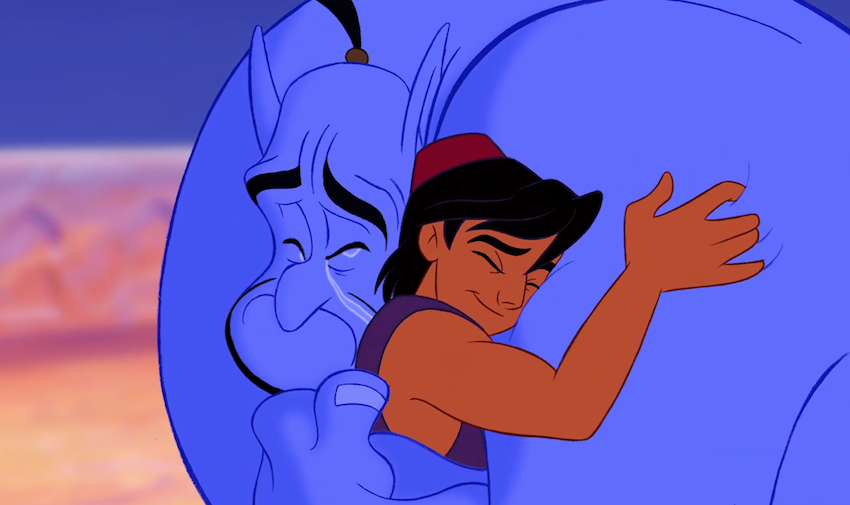 One of the greatest animated films also has the distinction of juggling two separate but equally important messages. The main theme of Aladdin is that the people that mean the most to you will love you for who you are, not how much stuff you have or what your title in life is. And this theme directly relates to both Aladdin and Princess Jasmine, who learn to love each other for the person, not the title of Prince or Princess. Yet it's the other theme that brings us to tears: putting others needs before your own. Genie was willing to forgo his own desire for freedom in order to let Aladdin and Jasmine stay together, but Aladdin took the bigger step and decided to free Genie, knowing now that if he was going to use Genie's magic to make his own desires come true, he would be no better than Jafar. This not only shows just how much Aladdin and Genie have grown to care for one another, but also just how much Aladdin has evolved as a person. He knows he could be risking his one and only chance at happiness, but he also understands that friends and family are forever. And when you have someone who was willing to give up their happiness for you, you should feel you must do the same.
One of the greatest animated films also has the distinction of juggling two separate but equally important messages. The main theme of Aladdin is that the people that mean the most to you will love you for who you are, not how much stuff you have or what your title in life is. And this theme directly relates to both Aladdin and Princess Jasmine, who learn to love each other for the person, not the title of Prince or Princess. Yet it's the other theme that brings us to tears: putting others needs before your own. Genie was willing to forgo his own desire for freedom in order to let Aladdin and Jasmine stay together, but Aladdin took the bigger step and decided to free Genie, knowing now that if he was going to use Genie's magic to make his own desires come true, he would be no better than Jafar. This not only shows just how much Aladdin and Genie have grown to care for one another, but also just how much Aladdin has evolved as a person. He knows he could be risking his one and only chance at happiness, but he also understands that friends and family are forever. And when you have someone who was willing to give up their happiness for you, you should feel you must do the same.+6 points
4. The Little Mermaid
 Many who criticize Disney's retelling of the classic Hans Christian Andersen often cite that Ariel doesn't change or learn any lessons. They say that Ariel wants something, there are obstacles, she endangers everyone she cares about, but still gets her way in the end. But here is the question to ask those who question this film: Was Ariel really the one who had to learn a lesson? After all, Ariel is a teenager, who are allowed to make dumb decisions and make mistakes. The one person in the whole story who truly had to mend broken bridges and learn a lesson was Ariel's father, King Triton. Triton comes to understand several things a father must always know: eventually, Ariel was going to grow up, and eventually, he had to let her go. Triton learns to put his own prejudices and anger to the side to make sure his daughter, arguably the child that means the most to him, take her own steps and chart her own course for happiness. This makes Ariel and Triton's sorrowful fair well all the more powerful as The Little Mermaid nears it's finale, showing us that children and teenagers aren't the only ones who make mistakes, but at the same time, they also aren't the only ones who can change for the better.
Many who criticize Disney's retelling of the classic Hans Christian Andersen often cite that Ariel doesn't change or learn any lessons. They say that Ariel wants something, there are obstacles, she endangers everyone she cares about, but still gets her way in the end. But here is the question to ask those who question this film: Was Ariel really the one who had to learn a lesson? After all, Ariel is a teenager, who are allowed to make dumb decisions and make mistakes. The one person in the whole story who truly had to mend broken bridges and learn a lesson was Ariel's father, King Triton. Triton comes to understand several things a father must always know: eventually, Ariel was going to grow up, and eventually, he had to let her go. Triton learns to put his own prejudices and anger to the side to make sure his daughter, arguably the child that means the most to him, take her own steps and chart her own course for happiness. This makes Ariel and Triton's sorrowful fair well all the more powerful as The Little Mermaid nears it's finale, showing us that children and teenagers aren't the only ones who make mistakes, but at the same time, they also aren't the only ones who can change for the better. +7 points
3. Beauty and the Beast
Here is the perfect example of what I was talking about before with regards to Hercules and Pocahontas. Beauty and the Beast's message is probably the most predictable of all of the other films on this list: true beauty comes from within or don't judge a book by it's cover. Yet, the film gives us so much time with these two together that we forget about just how easily this film could be predicted, because we're enveloped in the story. Belle and the Beast do not like each other at all in the beginning. In fact, they are downright hostile towards one another. But as the Beast stops acting coldly and maliciously towards Belle and as Belle let's her guard down and begins to see the Beast for just who he was, the two form a powerful friendship that eventually blossoms into a romance that few could see coming in the beginning. There is also the dramatic parallels Beast and Gaston go on, whereas the monster becomes more human, the human becomes more monstrous. Belle is able to fall in love with the Beast because of who he was on the inside, not by simply looking at him for his gruff exterior, and it's her undying devotion to the Beast that rewards her when he is transformed back into a Prince.
+8 points
2. The Lion King
 One could go on for hours talking about just why or how The Lion King is revered as the greatest Disney Animated film of all time, and in many cases, the arguments would be very valid. The theme of this magnificent picture is pretty much the most adult and most thought provoking of them all. But what makes The Lion King stand out is not just the theme, but also how the theme was depicted to children. Death and loss is a subject few children't films dare to challenge and if they do, it is often subdued (cough Bambi cough). Certain animated films do challenge these themes. A few of the most prominent include The Land Before Time, Up, An American Tail, Big Hero 6, among others. But The Lion King is one of the few that dared to take that bigger step. Upon seeing his father plummet to his death, Simba is forced to sit beside his father's dead body and literally grieve over his dead body, something kids almost never deal with until they are adolescents at least. But the theme is not "Loss will happen, be ready for it", but that no matter how much you are separated from someone, be it by miles or death, they will always be with you, so long as you remember what they taught you and live your life the way they wanted you to. This could entail friends, parents, siblings, grandparents, significant others, it could really mean whomever you hold close to your heart. In the case of Simba, he remembers that so long as he follows the teachings of his father, he will always be with him. And that is almost #1 worthy...
One could go on for hours talking about just why or how The Lion King is revered as the greatest Disney Animated film of all time, and in many cases, the arguments would be very valid. The theme of this magnificent picture is pretty much the most adult and most thought provoking of them all. But what makes The Lion King stand out is not just the theme, but also how the theme was depicted to children. Death and loss is a subject few children't films dare to challenge and if they do, it is often subdued (cough Bambi cough). Certain animated films do challenge these themes. A few of the most prominent include The Land Before Time, Up, An American Tail, Big Hero 6, among others. But The Lion King is one of the few that dared to take that bigger step. Upon seeing his father plummet to his death, Simba is forced to sit beside his father's dead body and literally grieve over his dead body, something kids almost never deal with until they are adolescents at least. But the theme is not "Loss will happen, be ready for it", but that no matter how much you are separated from someone, be it by miles or death, they will always be with you, so long as you remember what they taught you and live your life the way they wanted you to. This could entail friends, parents, siblings, grandparents, significant others, it could really mean whomever you hold close to your heart. In the case of Simba, he remembers that so long as he follows the teachings of his father, he will always be with him. And that is almost #1 worthy...+9 points
1. The Hunchback of Notre Dame
 But almost every single main character in The Hunchback of Notre Dame must learn a lesson of some kind, and each are different in their conception and results. The absolute best part, however, is this notion that each lesson gets progressively more adult and thought provoking the deeper you go into the film. Quasimodo, for example, learns to accept who he is and fight for the people he loves, even though some may never consider him handsome or normal. Esmeralda, one who was admittedly never one to be too religious or faithful, learns just how efficient praying is and how selflessness is more appreciated by the Church than selfishness. Phoebus must overcome the burdens of prejudice and the cold machinations of Frollo in order to protect Esmeralda, the woman he loves. And Judge Frollo, who represents all of the prejudice, corruption, and wickedness that the devil has to offer, is forced to endure pains far worse than death as all of his twisted schemes and plans fall apart and he is swallowed by the very pits of Hell. These lessons and emotional turns make The Hunchback of Notre Dame a superb animated film, and a criminally underrated film in my eyes. Simply superb...
But almost every single main character in The Hunchback of Notre Dame must learn a lesson of some kind, and each are different in their conception and results. The absolute best part, however, is this notion that each lesson gets progressively more adult and thought provoking the deeper you go into the film. Quasimodo, for example, learns to accept who he is and fight for the people he loves, even though some may never consider him handsome or normal. Esmeralda, one who was admittedly never one to be too religious or faithful, learns just how efficient praying is and how selflessness is more appreciated by the Church than selfishness. Phoebus must overcome the burdens of prejudice and the cold machinations of Frollo in order to protect Esmeralda, the woman he loves. And Judge Frollo, who represents all of the prejudice, corruption, and wickedness that the devil has to offer, is forced to endure pains far worse than death as all of his twisted schemes and plans fall apart and he is swallowed by the very pits of Hell. These lessons and emotional turns make The Hunchback of Notre Dame a superb animated film, and a criminally underrated film in my eyes. Simply superb...+10 points
Tune in for the Finale...
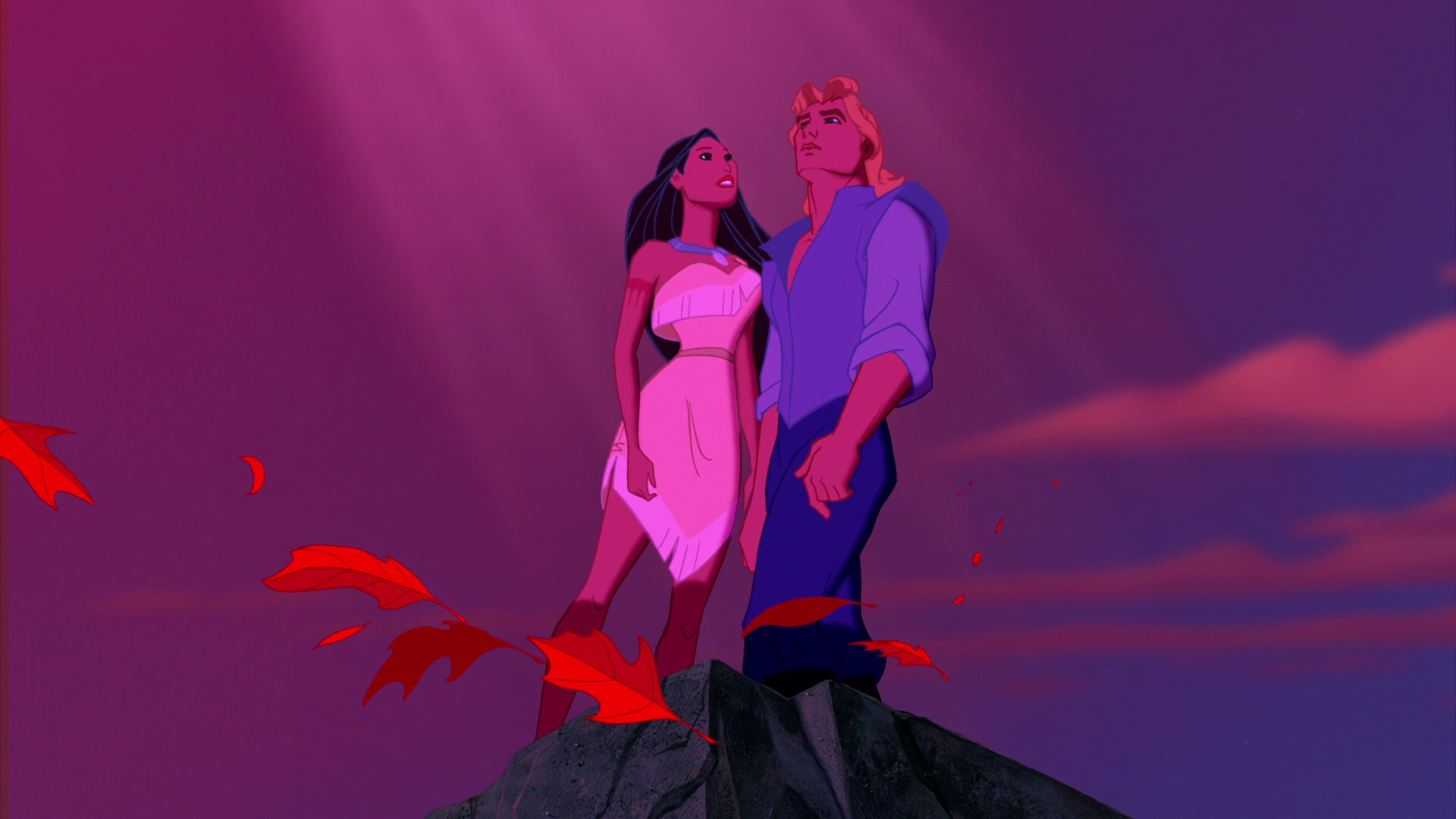
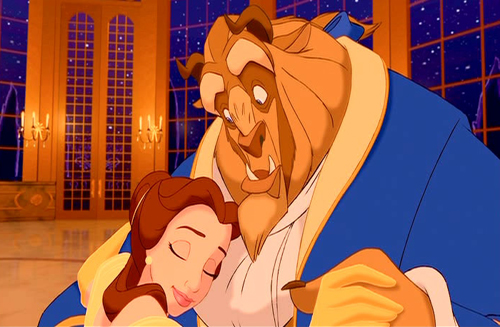
No comments:
Post a Comment